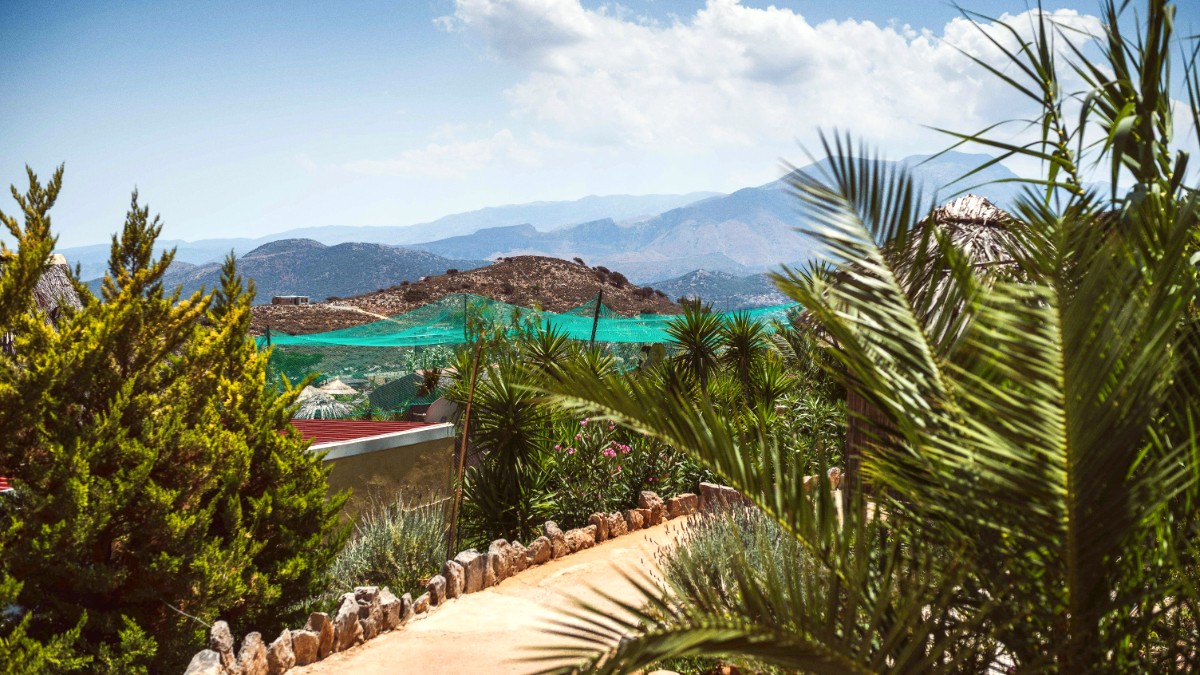
Greece
Crete experiences a Mediterranean climate, characterized by hot, dry summers and mild, wet winters.
Heatwaves may occur in July and August, with temperatures potentially exceeding 40°C (104°F). Hydration and sun protection assume importance.
Meltemi winds, strong and dry northwesterlies, appear in summer. They cool the air but may create rough sea conditions, affecting swimming or boat trips.
July - August
Optimal beach weather. All services operate fully. Bustling atmosphere.
Significant crowds. Peak prices for accommodation and flights. Intense heat may present discomfort.
April - June, September - October
Pleasant weather. Fewer crowds. Lower prices. Sea remains warm for swimming.
Some smaller services may offer reduced hours or close in early spring or late autumn.
November - March
Lowest prices for flights and accommodation. Few tourists; authentic local experience. Lush landscapes.
Cooler temperatures, higher chance of rain. Many tourist-oriented businesses close. Limited transportation to certain areas.
Greece, a Schengen Area member, shares a common visa policy with 26 other European countries. Nationality determines specific visa and entry requirements for your Rethymno trip. Check IVisa or VisaHQ for services.
Citizens from many nations (e.g., USA, Canada, UK) travel visa-free for up to 90 days within any 180-day period. From 2025, visa-exempt non-EU citizens will require an ETIAS travel authorization, a pre-travel system. Secure ETIAS online before departure in 2025 or later.
Valid for at least three months beyond departure, with two blank pages.
A valid visa sticker within your passport.
Evidence of planned departure from the Schengen Area.
Financial means to cover your stay (bank statements, credit cards, cash).
Mandatory for Schengen visa applicants, and highly endorsed for all travelers.
The Euro (EUR) is the sole currency.
Credit and debit cards (Visa, Mastercard) enjoy wide acceptance. American Express and Discover see less common use. ATMs are present in Rethymno city. When using ATMs, decline the machine's currency conversion offer for better rates.
Tipping in Greece is customary but not obligatory. It varies by service. Always check for service charges included in bills.
Tap water in Rethymno is generally safe to drink. This lessens the need for Bottled water, saving money and plastic waste. A Reusable filtered water bottle, like a LifeStraw Filter Bottle, proves useful.
Greece presents a safe destination, but taking precautions enhances your journey.
No specific vaccinations for Greece, but routine ones (MMR, DTP, Polio) must stand current. Consult a healthcare professional for traveler-specific recommendations (Hepatitis A and B, Tetanus booster).
Intense Mediterranean sun (May-Sept). Apply high-SPF Mineral sunscreen (e.g., Thinksport Mineral Sunscreen SPF 50+). Wear Wide-brimmed hats and Sunglasses. Seek shade 11 AM - 4 PM. Stay hydrated.
Mosquitoes present, especially evenings. Use Insect repellent (e.g., Repel Eucalyptus Insect Repellent).
Tap water in Rethymno is generally safe to drink.
Food hygiene standards in Rethymno's eateries remain high. Fresh produce from local markets provides safe consumption after washing.
A LifeStraw Filter Bottle is an excellent choice for additional water purification on the go.
Enjoy local cuisine with confidence, practicing good hand hygiene.
Rethymno General Hospital on Gennimatas Street provides emergency and general medical services.
Identifiable by a green cross, pharmacies are widespread. Pharmacists offer advice for minor ailments; many speak English.
EU citizens use EHIC. Non-EU citizens rely on comprehensive Travel insurance or SafetyWing. Insubuy offers various coverage.
Rethymno is a very safe city with low crime rates. Basic precautions remain prudent, like safeguarding valuables.
Comprehensive travel insurance, for medical emergencies and trip disruptions, gains strong endorsement. Check policy coverage for planned activities. AirHelp may assist with flight disruptions.
112: Connects to ambulance, fire, police. Operators often speak English. Direct lines: Police 100, Ambulance 166, Fire 199.
Medical emergencies, trip cancellation, lost luggage, personal liability. Verify coverage for activities like hiking or water sports.
Adventure Medical Kits for first aid. Pacsafe for anti-theft bags. Carry a small card with accommodation details and emergency contacts.